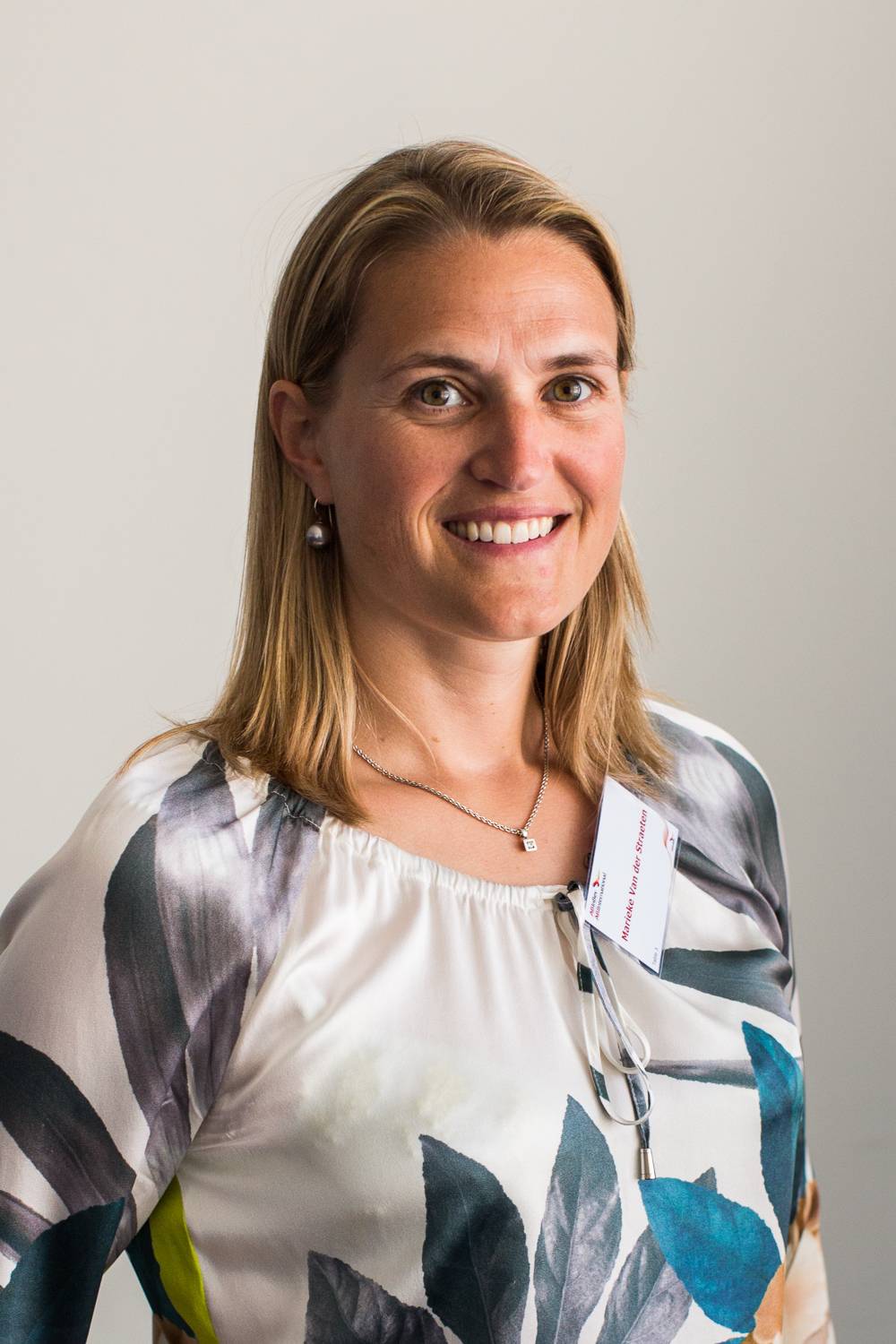
Mental Wellbeing in The Workplace: An Interview with Marieke Van der Straeten
Business
For Marieke Van der Straeten, taking care of your mental health is about building resilience. It’s a proactive approach that takes effort – even when you’re not struggling. myGwork spoke to Marieke, AB InBev Fonds Verhelst manager, about why diversity and inclusion professionals must also focus on mental health and how to embed wellbeing into the pillars of your workplace culture.
After studying economics and starting a career in finance, Marieke joined AB InBev in a finance-related role. Although she enjoyed the data and analytics side of the job, she realized that she needed something which involved more human interaction and the ability to help others. So, when she was asked to join the People team as Rewards Manager, and later as a People manager, she jumped at the chance.

Then, a unique opportunity came along, and she became AB InBev’s Fonds Verhelst manager. The Verhelst Foundation was launched in 1949 by Léon Verhelst, the former president of Stella Artois. He’d worked at the brewery for over 50 years and, throughout this time, had been committed to improving the lives of their employees. At 76 years old, he wanted to create something that would support their workers long after his death.
Today, the foundation exists to inspire and empower the people of AB InBev Europe to unlock their full potential. As part of this, they offer programs to all employees and their families to help them improve or maintain their mental, physical, and social wellbeing. From organizing the Big Step Challenge and bringing the teams together to ensuring everyone has access to their Employee Assistance Program, Marieke’s role varies greatly but exists to uplift and support the people of AB InBev. Throughout her time at the company, she has been able to see their commitment to speaking honestly about mental health grow.
“We see more and more focus on diversity and inclusion and wellbeing. We see managers who are leading by example and walk the talk on mental health, wellbeing, and diversity and inclusion. And that is, for me, a big change that we have seen over the last years, which makes me happy.”
Marieke is incredibly passionate when it comes to mental health, with a deep understanding of the importance of personal resilience. This year, her father had a brain haemorrhage amid the pandemic, and he was hospitalized. Her family, unable to visit, didn’t know what would happen next. “It made me realize how important strong personal resilience is,” Marieke shares. “And how important it is to have a supporting environment, just people that want to listen to your story, without always offering help or offering solutions.”
Mental resilience, to Marieke, is a crucial part of wellbeing, and she hopes more people will realize that it is something that can be worked on and improved. Even if you’re not struggling, she explains, you can still be proactive to build up your resilience for the future. Because, when it comes to mental health, everyone will have challenges at some point, which is why it is vital for workplaces to open the conversation: it’s an issue that will affect everyone in your team, in some shape or form, throughout their life. By creating a supportive environment, you are ensuring that your employees can ask for help when they need it, which can make all the difference.
“I think it’s important for everyone, as a manager or as a colleague, to realize that every person is struggling with something or has been struggling at some point. And feeling supported by your environment makes a big difference.”
Throughout Marieke’s 14 years at AB InBev, she has seen how the conversation about mental wellbeing and the one focusing on diversity and inclusion have overlapped. To her, the two are connected, and you cannot create an inclusive work environment without also offer support for wellbeing.
“If you have a diverse population, you also have a lot of differences in opinions, differences in how people see things, or how people are. And I think it requires more effort from everyone to listen to each other and to be open to each other’s points of view, and also to be open to taking into account other people’s feelings or how they think. If you don’t have a diverse and inclusive culture, many people won’t feel accepted, and they won’t have the trust to have more open conversations.”
Marieke also understands the importance of LGBTQ+ specific resources when we talk about mental health. When people are marginalized by society, they can be more vulnerable and need mental health support, so it only makes sense that we have spaces and resources designed with their specific needs in mind.
“We all know LGBTQ+ people are faced with much more discrimination, both professionally and privately,” she explains. “Not only discrimination, but the process you go through as a person can be much more difficult. And so, it’s only logical that they might be more vulnerable to facing mental health issues. But if people feel that it’s ok to talk about this or just to be themselves knowing that they won’t be judged, we can trigger change.”
Creating an inclusive culture in which people feel comfortable asking for help, although vital, is often just the first step, Marieke explains. You also need to have resources and support in place for when people do come forward. Asking for help can be incredibly difficult, so offering the support they need or signposting a colleague to somewhere they can find support is essential.
“I try to reassure anyone who comes to me that asking for help is already the most difficult step. And it’s a very, very brave thing to do. So, once they have taken that step, I think it’s already easier to guide them to professional help because, of course, I’m not a psychologist, I won’t always be able to solve things. But I can try to guide them to the right people, the right programs, and the right support that we offer.”
Mental health can be a sensitive topic, with stigma and misunderstandings still rife, which makes it even more important for workplaces to create educational and safe spaces. We all have mental health, so looking after it is not optional, and, as Marieke knows, building resilience throughout our lives is vital. The role of a Fonds Verhelst manager may be a unique one, but it involves a practice that we can all embed into our daily lives and organizations.
“My dream would be that everyone can always be themselves,” says Marieke. “And I think if you feel that you can be yourself and that you can express your opinion, and that your opinion is respected, then people will thrive in life.”

